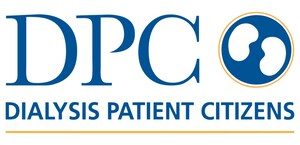NBA Legend/Kidney Disease Advocate Alonzo Mourning Visits Capitol Hill to Promote Kidney Disease Awareness, Urge Protection for Medicare's Dialysis Benefit
Mourning Expressed Concern Over Government's "Proposed Rule" for Medicare's Dialysis Benefit That Would Weaken Benefit, Add Financial Burdens on Patients
WASHINGTON, May 14 /PRNewswire-USNewswire/ -- Former seven-time NBA All-Star Alonzo Mourning, who had received a kidney transplant and then returned to help win the Miami Heat's 2006 World Championship, visited Capitol Hill yesterday to meet with lawmakers over proposed reimbursement changes to Medicare's dialysis benefit.
Mourning, founder of Zo's Fund for Life to promote kidney disease education, health and awareness, has become a vocal advocate for effective chronic kidney disease (CKD) and end-stage renal disease (ESRD) legislation that impacts patients at the state and federal levels. The proposed "bundled payment" for Medicare's dialysis benefit has become a recent focal point for concern among the broader kidney community and the nation's leading kidney advocacy groups because of the harmful impact it could have on the stability of the benefit and the financial strain it could put on the vulnerable dialysis patient population.
"First, dialysis patients must take certain expensive, oral drugs to ensure that their treatments are successful, and this proposed bundled payment in its current form would significantly increase co-payments that patients must pay for their drugs, which could be a barrier to care," said Mourning. "Second, this proposed bundled payment is not based on reliable or current cost data. Medicare would only be providing $14 in reimbursement for these critical oral drugs, but current data shows those costs to be three times that amount. That miscalculation will have negative consequences on this critical benefit."
Mr. Mourning also pointed out that the proposed rule does not adjust reimbursement payments for the specific needs of certain patients, such as African Americans, who might require more medications to receive desired outcomes, which the current rule in place does. "Caring for kidney patients is not a 'one-size-fits-all' approach. Studies show that African Americans, for example, require more dialysis services and higher doses of certain medications to achieved desired outcomes. The current proposal needs to have proper adjustments in its reimbursement formula to account for this fact."
Mr. Mourning was accompanied by leadership from the American Kidney Fund, the National Kidney Foundation and Dialysis Patient Citizens during his visit with numerous Members of the House and Senate, asking them to please weigh in their concerns with the Centers for Medicare and Medicaid Services, the government agency that oversees Medicare's dialysis benefit and issued the proposed rule in its current form.
A March 17 joint letter from the American Kidney Fund, Dialysis Patient Citizens, Renal Support Network and the National Kidney Foundation to Members of Congress expressed concern over proposed rule as a "potential source of unintended consequences for individuals who need life-saving dialysis care."
The four organizations pointed out in their letter that all lab costs provided in connection with the treatment of ESRD would also be added to the bundle, subjecting Medicare ESRD beneficiaries to a liability for 20 percent coinsurance even though other Medicare beneficiaries do not have a co-insurance for lab costs. The letter states, "The final rule should not increase the financial burden of care on dialysis patients. If the rule does so, dialysis patients would become the only Medicare beneficiaries who are subject to a co-pay for laboratory services."
"CMS's proposed bundle in its current form would essentially cut this benefit three percent deeper than the two percent Congress authorized when it passed MIPPA (the Medicare Improvements for Patients and Providers Act) in 2008," added Chad Lennox, Executive Director of Dialysis Patient Citizens, who accompanied Mr. Mourning in the Capitol Hill visits. "This, compounded with the fact that many of the calculations in CMS's proposed bundled payment are not based on accurate and reliable data, highlights the need to have a system in place to determine the rule's impact on patients' quality of care and ensure their outcomes are not negatively affected."
About Dialysis Patient Citizens
Dialysis Patient Citizens (DPC) is an independent, nationwide, non-profit, patient-governed dialysis patient organization dedicated to improving dialysis patients' quality of life by developing awareness of dialysis-related issues, advocating for dialysis and pre-dialysis patients, improving the partnership between patients and caregivers, and promoting favorable public policy. DPC provides comprehensive information on kidney disease treatments, legislative policies and patient resources at www.dialysispatients.org.
SOURCE Dialysis Patient Citizens
WANT YOUR COMPANY'S NEWS FEATURED ON PRNEWSWIRE.COM?
Newsrooms &
Influencers
Digital Media
Outlets
Journalists
Opted In





Share this article